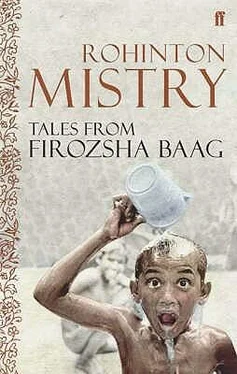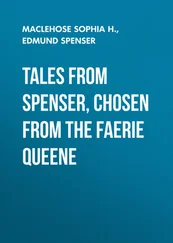Rohinton Mistry - Tales From Firozsha Baag
Здесь есть возможность читать онлайн «Rohinton Mistry - Tales From Firozsha Baag» весь текст электронной книги совершенно бесплатно (целиком полную версию без сокращений). В некоторых случаях можно слушать аудио, скачать через торрент в формате fb2 и присутствует краткое содержание. Год выпуска: 2006, Издательство: Faber & Faber, Жанр: Современная проза, на английском языке. Описание произведения, (предисловие) а так же отзывы посетителей доступны на портале библиотеки ЛибКат.
- Название:Tales From Firozsha Baag
- Автор:
- Издательство:Faber & Faber
- Жанр:
- Год:2006
- ISBN:нет данных
- Рейтинг книги:3 / 5. Голосов: 1
-
Избранное:Добавить в избранное
- Отзывы:
-
Ваша оценка:
- 60
- 1
- 2
- 3
- 4
- 5
Tales From Firozsha Baag: краткое содержание, описание и аннотация
Предлагаем к чтению аннотацию, описание, краткое содержание или предисловие (зависит от того, что написал сам автор книги «Tales From Firozsha Baag»). Если вы не нашли необходимую информацию о книге — напишите в комментариях, мы постараемся отыскать её.
Tales From Firozsha Baag — читать онлайн бесплатно полную книгу (весь текст) целиком
Ниже представлен текст книги, разбитый по страницам. Система сохранения места последней прочитанной страницы, позволяет с удобством читать онлайн бесплатно книгу «Tales From Firozsha Baag», без необходимости каждый раз заново искать на чём Вы остановились. Поставьте закладку, и сможете в любой момент перейти на страницу, на которой закончили чтение.
Интервал:
Закладка:
There was still no sign of Francis. Kersi and Percy approached the first of the tenements, with the familiar cow tethered out in front — it was the only one in this neighbourhood. Each morning, accompanied by the owner’s comely daughter and a basket of cut green grass, it made the round of these streets. People would reverently feed the cow, buying grass at twenty-five paise a mouthful. When the basket was empty the cow would be led back to Tar Gully.
Kersi remembered one early morning when the daughter was milking the cow and a young man was standing behind her seated figure. He was bending over the girl, squeezing her breasts with both hands, while she did her best to work the cow’s swollen udder. Neither of them had noticed Kersi as he’d hurried past. Now, as Kersi recalled the scene, he thought of Najamai’s daughters, the rat in the bedroom, Vera’s near-nude body, his dispossessed fantasy, and once again felt cheated, betrayed.
It was Percy who first spotted Francis and pointed him out to Kersi. It was also Percy who yelled “Chor! Chor! Stop him!” and galvanized the waiting Matka patrons into action.
Francis never had a chance. Three men in the distance heard the uproar and tripped him as he ran past. Without delay they started to punch him. One tried out a clumsy version of a dropkick but it did not work so well, and he diligently resumed with his fists. Then the others arrived and joined in the pounding.
The ritualistic cry of “Chor! Chor!” had rendered Francis into fair game in Tar Gully. But Kersi was horrified. This was not the way he had wanted it to end when he’d emerged with his bat. He watched in terror as Francis was slapped and kicked, had his arms twisted and his hair pulled, and was abused and spat upon. He looked away when their eyes met.
Then Percy shouted: “Stop! No more beating! We must take the thief back to the bat from whom he stole. She will decide!”
The notion of delivering the criminal to the scene of his crime and to his victim, like something out of a Hindi movie, appealed to this crowd. Kersi managed to shake off his numbness. Following Percy’s example, he grabbed Francis by the arm and collar, signifying that this was their captive, no longer to be bashed around.
In this manner they led Francis back to Firozsha Baag — past the tethered cow, past the bunya’s shop, past the overflowing gutters of Tar Gully. Every once in a while someone would punch Francis in the small of his back or on his head. But Percy would remind the crowd of the bat who had been robbed, whereupon the procession would resume in an orderly way.
A crowd was waiting outside C Block. More neighbours had gathered, including the solitary Muslim tenant in Firozsha Baag, from the ground floor of B Block, and his Muslim servant. Both had a longstanding grudge against Francis over some incident with a prostitute, and were pleased at his predicament.
Francis was brought before Najamai. He was in tears and his knees kept buckling. “Why, Francis?” asked Najamai. “Why?”
Suddenly, a neighbour stepped out of the crowd and slapped him hard across the face: “You budmaash! You have no shame? Eating her food, earning money from her, then stealing from her, you rascal?”
At the slap, the gathering started to move in for a fresh round of thrashing. But Najamai screamed and the crowd froze. Francis threw himself at her feet, weeping. “Bai,” he begged, “you hit me, you kick me, do whatever you want to me. But please don’t let them, please!”
While he knelt before her, the Muslim servant saw his chance and moved swiftly. He swung his leg and kicked Francis powerfully in the ribs before the others could pull him away. Francis yelped like a dog and keeled over. Najamai was formally expressing her gratitude to Silloo. “How brave your two sons are. If they had not gone after that rogue I would never have seen my eighty rupees again. Say thanks to Percy and Kersi, God bless them, such fine boys.” Both of them pointedly ignored Tehmina who, by this time, had been established as the minor villain in the piece, for putting temptation in Francis’s path.
Meanwhile, the crowd had dispersed. Tehmina was chatting with the Muslim neighbour. Having few friends in this building, he was endeavouring to ingratiate himself with her while she was still vulnerable, and before she recovered from C Block’s excommunication. By the light of the full moon he sympathized with her version of the episode.
“Najamai knows my eyes are useless till these cataracts are removed. Yet she wants me to keep her keys, look after her flat.” The cloves ventured to her lips, agitated, but she expertly sucked them back to the safety of her cheeks. “How was I to know what Francis would do? If only I could have seen his eyes. It is always so dark in that hallway.” And the Muslim neighbour shook his head slowly, making clucking sounds with his tongue to show he understood perfectly.
Back in her flat, Najamai chuckled as she pictured the two boys returning with Francis. “How silly they looked. Going after poor Francis with their big bats! As if he would ever have hurt them. Wonder what the police will do to him now.” She went into the kitchen, sniffing. A smell of ammonia was in the air and a pool of yellowish liquid stood where Francis had been hiding behind the kitchen door. She bent down, puzzled, and sniffed again, then realized he must have lost control of his bladder when she screamed.
She mopped and cleaned up, planning to tell Silloo tomorrow of her discovery. She would also have to ask her to find someone to bring the rations next week. Maybe it was time to overcome her aversion to full-time servants and hire one who would live here, and cook and clean, and look after the flat. Someone who would also provide company for her, sometimes it felt so lonely being alone in the flat.
Najamai finished in the kitchen. She went to the bedroom, lowered her weight into the easy chair and picked up the Boyces’ Sunday paper.
Kersi was in the bathroom. He felt like throwing up, but returned to the bedroom after retching without success. He sat on the bed and picked up his bat. He ripped off the rubber grip and slowly, meditatively, started to tear the freshly glued cord from around the handle, bit by bit, circle by circle.
Soon, the cord lay on the floor in a black tangled heap, and the handle looked bald, exposed, defenceless. Never before had Kersi seen his cricket bat in this flayed and naked state. He stood up, grasped the handle with both hands, rested the blade at an angle to the floor, then smashed his foot down upon it. There was a loud crack as the handle snapped.
The Ghost of Firozsha Baag
I always believed in ghosts. When I was little I saw them in my father’s small field in Goa. That was very long ago, before I came to Bombay to work as ayah.
Father also saw them, mostly by the well, drawing water. He would come in and tell us, the bhoot is thirsty again. But it never scared us. Most people in our village had seen ghosts. Everyone believed in them.
Not like in Firozsha Baag. First time I saw a ghost here and people found out, how much fun they made of me. Calling me crazy, saying it is time for old ayah to go back to Goa, back to her muluk , she is seeing things.
Two years ago on Christmas Eve I first saw the bhoot . No, it was really Christmas Day. At ten o’clock on Christmas Eve I went to Cooperage Stadium for midnight mass. Every year all of us Catholic ayahs from Firozsha Baag go for mass. But this time I came home alone, the others went somewhere with their boyfriends. Must have been two o’clock in the morning. Lift in B Block was out of order, so I started up slowly. Thinking how easy to climb three floors when I was younger, even with a full bazaar-bag.
Читать дальшеИнтервал:
Закладка:
Похожие книги на «Tales From Firozsha Baag»
Представляем Вашему вниманию похожие книги на «Tales From Firozsha Baag» списком для выбора. Мы отобрали схожую по названию и смыслу литературу в надежде предоставить читателям больше вариантов отыскать новые, интересные, ещё непрочитанные произведения.
Обсуждение, отзывы о книге «Tales From Firozsha Baag» и просто собственные мнения читателей. Оставьте ваши комментарии, напишите, что Вы думаете о произведении, его смысле или главных героях. Укажите что конкретно понравилось, а что нет, и почему Вы так считаете.












